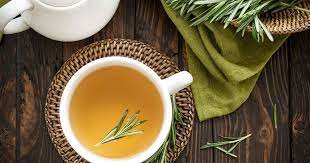Hyssop (Hyssopus officinalis) is a medicinal plant of great interest, although it is not among the most known and used in our country. This herbaceous perennial, native to the southern regions of Europe and Asia Minor, is harvested both in spring and autumn. It is characterized by a delicate fragrance, which makes it a highly appreciated species in fields as diverse as gardening and perfumery.
But it is its properties in relation to health and well-being that have attracted the most attention. So much so that, throughout history, it has been revered as a treasure trove of healing properties. For example, it is referred to on several occasions by the Persian physician and philosopher Ibn Sina, who lived in the early eleventh century. According to the Bible, it was the plant on which the legionaries guarding the cross of Jesus of Nazareth strung the sponge soaked in vinegar that they gave him to drink.
The reason why this herb has been and is so highly valued is that it is very rich in medicinal components that give it its therapeutic properties. Its essential oil contains thujone and alpha pinene. It also contains malic acid, phenolic acids, flavonoids and hesperidin, as well as bitter principles, such as marrubin and tannins. These components, together, confer a wide variety of properties, such as those we are going to see below.
Remedy for respiratory diseases
It is considered that this herb is able to relieve respiratory diseases, as this herb shows mucolytic, expectorant, anti-inflammatory and antitussive properties. Although it is not recommended in cases of pharyngitis or bronchitis, its ability to thin mucus and facilitate its elimination makes it a highly recommended remedy to alleviate the effects of colds and flu.
Digestive aid
Like many other herbs, hyssop is a very suitable remedy to improve digestion. Although it is less known than other remedies, it has properties that help fight gas and flatulence when consumed after meals. Taken as an infusion before meals, it can favor the secretion of gastric juices, improving cases of slow or heavy digestion.
For lack of menstruation
Hyssop is attributed to the emmenagogue capacity, that is, it favors menstruation in women who have stopped having it for reasons such as unbalanced diets, stress or mild hormonal disorders. It is suggested the daily intake of a cup of hyssop infusion on an empty stomach for at least three months, although it is not recommended in cases of heavy menstruation, endometriosis, pregnancy or breastfeeding.
How to take advantage of its benefits
One of the best ways to benefit from the properties of hyssop is the infusion. This is the most common way of consumption to treat mild disorders, taking advantage of its medicinal properties. A cup of infusion with the flowering tops can be beneficial to prevent infections and alleviate respiratory symptoms.
Hyssop is not only medicinal, but also a delicious aromatic herb. Its leaves and flowers, with a flavor similar to mint, rosemary or sage, can season salads, stews, pastas and rice dishes, providing a unique culinary experience.
Another way to benefit from its properties is external application. For example, baths or the application of poultices with a concentrated infusion of hyssop can accelerate wound healing and promote circulation.
In addition, hyssop oil is suitable for massage, helping to improve circulation and prevent varicose veins. It is important to note that this oil is for external use only and should never be consumed, as it presents risks of toxicity to the body.













